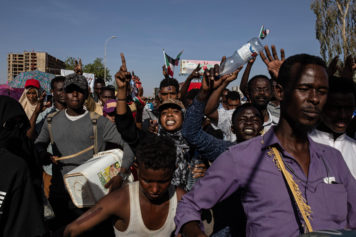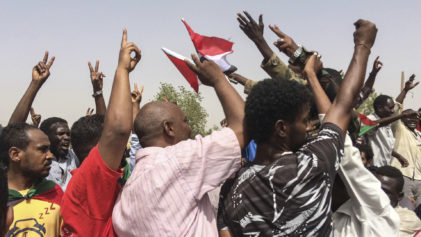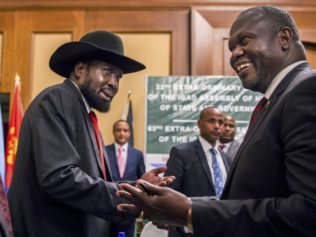It appears that Sudan and South Sudan may finally have reached agreement over their border disputes to start oil flowing again in South Sudan.
Sudan and South Sudan have been engaged in conflict for so long that after South Sudan was granted its independence in 2011, the two sides seemed unable to resolve the many disputes that come with sharing a 1,200-mile border — particularly when South Sudan needs the cooperation of Sudan to transport its oil shipments to the Red Sea.
Skirmishes between the two countries are so bad that South Sudan shut down its 350,000 barrels-a-day oil production a year ago — even though oil accounts for 98 percent of its GDP. The shutdown forced the government, which provides only a bare minimum of services to South Sudan citizens, to virtually stop paying its civil servants.
The ceasing of oil production in South Sudan also caused a drastic reduction in the income of Sudan, which lost three-quarters of the nation’s income when South Sudan seceded. The dispute centered around how much South Sudan should pay to export crude through pipelines in Sudanese territory to a Red Sea port, and South Sudan’s accusation that Sudan stole $815 million of its oil. Sudan doesn’t deny the accusation, but says it took the crude to recoup unpaid transportation and processing fees.
At a meeting Saturday between the two presidents, Sudanese President Umar al-Bashir and South Sudan’s Salva Kiir, the two sides agreed to set up a demilitarized zone along their disputed border region “without further delay.”
They also agreed to consider establishing a commission to hold a referendum on the status of the disputed Abyei border area — which both sides claim ownership — at a meeting Jan. 13 in Addis Ababa, according to a statement posted on the African Union’s website. Both sides also accuse the other of supporting rebels against their governments. South Sudan says Sudan has been shooting bombs into its territory. Their mutual hostility brought them to the brink of war again in April, but they pulled back at the last minute.
Envoys from China, which has been trying to broker a settlement in the dispute because Sudan is one of its top foreign suppliers of crude oil, had predicted months ago that the oil might resume flowing by November. But their prediction was wrong.
Though South Sudan made more than $10 billion in oil revenue from 2005 to January 2012, the citizens of this new nation have seen no improvement in their quality of life as a result of its oil riches. This, unfortunately, is a common tale heard across the African continent. The deprivation in the lives of the average South Sudanese citizen is seen through the statistics:
*According to the U.N. Population Fund, South Sudan has the worst maternal mortality rate in the world, with 2,054 deaths for every 100,000 live births — primarily because about 90 percent of women give birth away from formal medical facilities.
* The South Sudan government reported that the illiteracy rate was 73 percent in 2011. Because of the decades of war with Sudan, only a handful of the population have been able to attend school.
* The capital of South Sudan, Juba, has only 110 kilometers of paved roads.
Dr. Leben Nelson Moro of Juba University’s faculty of peace and development studies told IPS, “The oil money must be used in a manner that will be beneficial to the whole country and not the few people who are close to the treasury.”
The government contribution to the funding of hospitals and schools is minimal.
“We have many young people who need skills,” Moro said. “The government should ensure young people receive skills training to enable them to get jobs. For our people to work hard and develop the country, they must first be in good health. But for them to be healthy there must be good healthcare services in the country.”


